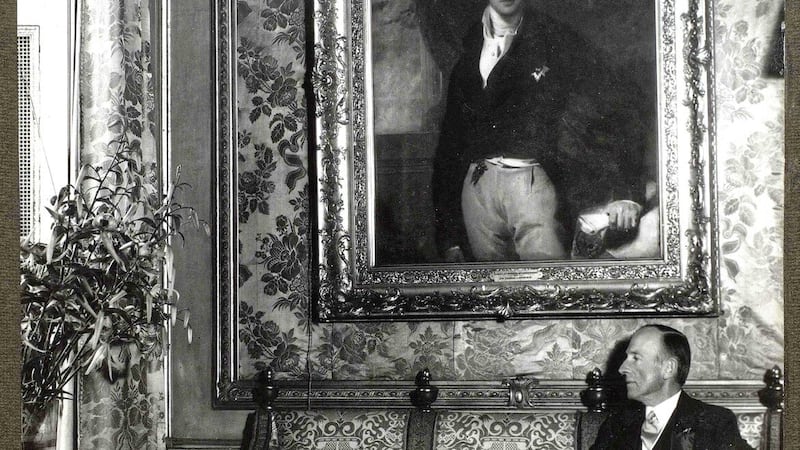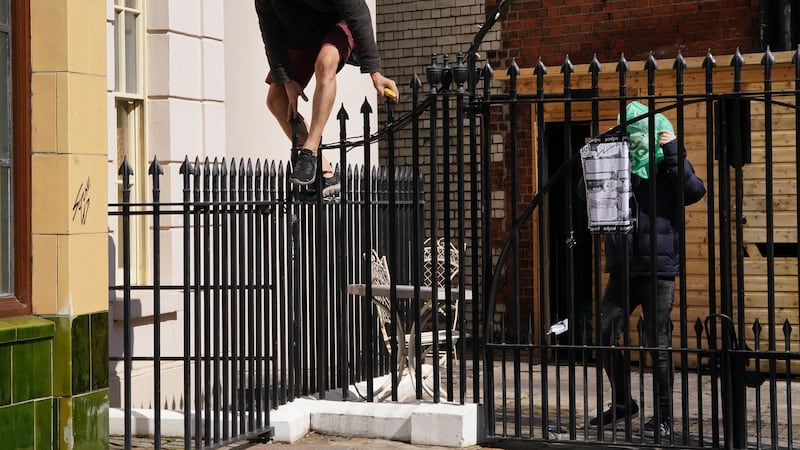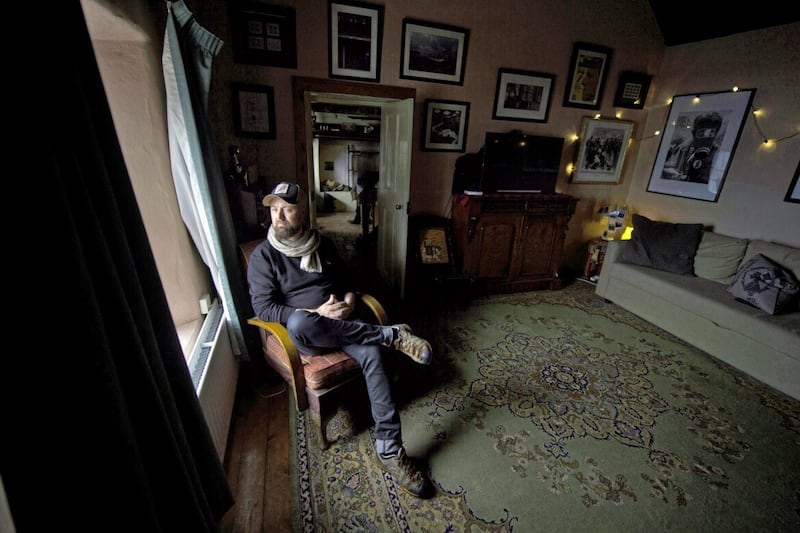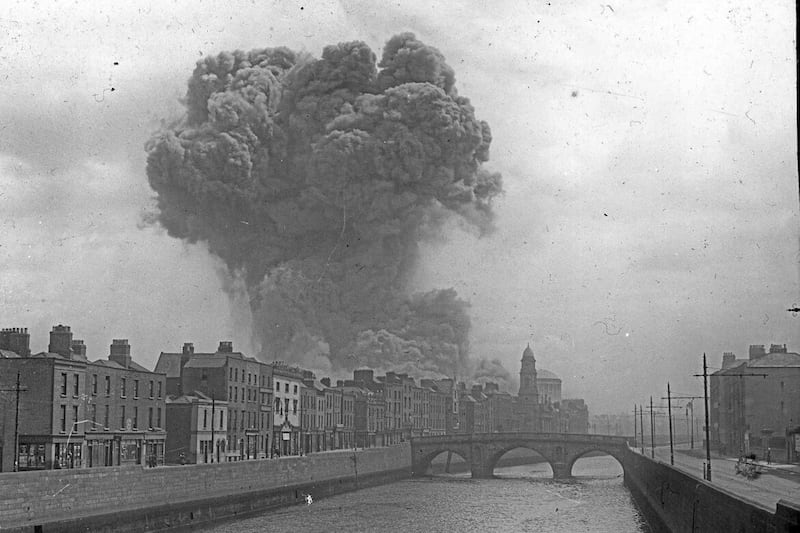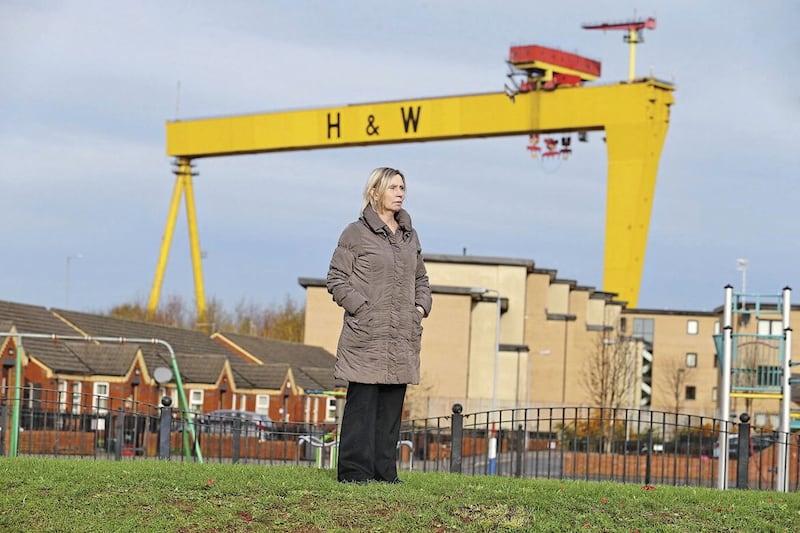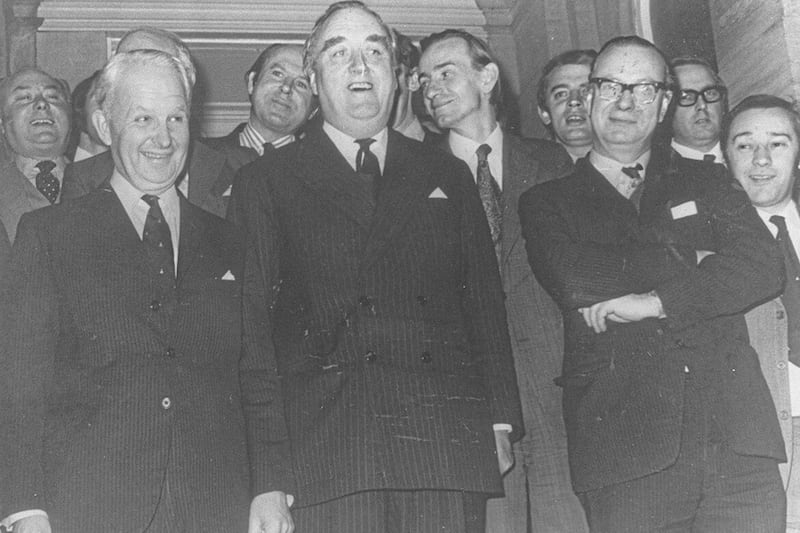WHEN Northern Ireland came into being in 1921, its ministry of education inherited nothing more than the schools and colleges which had been operating within its six counties.
It was an enormous task for the minister of education, Lord Londonderry, to build from the ground up a new education system for the fledgling polity. Born in London, Charles Stewart Henry Vane-Tempest Stewart, seventh Marquess of Londonderry, was among the richest landowners in the United Kingdom.
He served as education minister and leader of the Northern Ireland Senate from June 1921 to 1926. Of his appearance, it was noted, "he apes his ancestor, the great Lord Castlereagh, wears a high black stock over his collar, and a very tightly fitting frock coat and doesn't look as if he belongs to this century at all".
He addressed "his civil servants like domestics and emphasised points by striking the ministerial table with his riding crop". He would appear in the morning "meticulously groomed; his face almost shone, as if he had been shaved twice and then polished with pumice by his valet".
Always more interested in British than Irish politics, he served as secretary of state for air from 1931 to 1935, giving him responsibility for the Royal Air Force. His closeness to and favourable opinions of leading Nazis throughout the 1930s has not helped his reputation, though.
The ministry of education was established on June 7 1921, but it was not until February 1 1922 that control of the educational services was transferred to the northern ministry. Afterwards, there still were difficulties in securing the transfer of personnel and necessary files and documents from Dublin.
One of Londonderry's first actions as minister was to establish the Lynn Committee, named after its chairman Robert Lynn, to propose structures for the future of education in Northern Ireland. The committee did not receive cross-community support, with the Catholic Church refusing to participate on the committee, having been offered only four out of 30 seats on the committee. It believed the influence of four members out of a committee dominated by unionists and Protestants would be minimal.
The Lynn committee produced an interim report in June 1922. This formed the basis of Londonderry's Education Act of 1923. The interim report recommended the creation of local education committees to act as education authorities to become the main providers of education services. Emphasis was placed on the need for a positive and close relationship to be maintained between the schools and the churches they were associated with.
A recommendation of the committee was to make the Irish language an optional subject, viewing it as a secondary language, like French. This was greeted with hostility from the nationalist community as evidence of the regime's antipathy towards its cultural values.
All history books would need to be approved by the ministry. The teaching of civics would include instructions on loyalty to the Northern Ireland constitution and the British empire and the flying of the Union flag was recommended to be flown in all schools on suitable occasions. Although claiming to be mindful of Catholic views, many of the committee's recommendations suggested otherwise.
As part of a wider non-recognition campaign of northern institutions, many Catholic schools boycotted the northern education ministry in early 1922 with the explicit support of the newly formed provisional government of the Irish Free State. Michael Collins was prepared to finance the northern schools who refused to recognise the Belfast ministry.
At its peak, over one third of Catholic schools supported the boycott with the Free State provisional government paying schools' staff salaries. Although the Catholic Church took a neutral stance publicly, it offered considerable consultation to the Dublin government in encouraging the non-recognition campaign.
Londonderry was scathing in his criticism of the provisional government's obstructionist policy, declaring, "it will not succeed. It can have one effect only, and that will be to widen, beyond hope of repair, the breach that already exists between the north and the south".
By the summer of 1922, with the civil war commencing in the south, the momentum of the campaign was stalled. The campaign lost its biggest advocate from the provisional government with the death of Collins in August. It decided to cease payment to the teachers in September with the last payment being made in November 1922.
The primary outcome of the boycott was to worsen relationships between both communities. Many unionists believed Catholic teachers "leaned strongly towards sedition". Sean Farren claims, "it also had the further effect of reducing the possibility of co-operation at an educational level between the two Irish administrations in such areas as teacher training where the possibility of maintaining an all-Ireland framework had existed".
There was just one teacher training college located in the north from the outset of partition - St Mary's, the Catholic college for female students in Belfast. With the Free State government introducing sweeping changes to education from 1922, with a large emphasis on Irish and Gaelic culture, the northern education ministry "insisted that Northern Ireland teachers would have to be trained in the north as the southern system and curriculum were at a significant variance".
This posed a big dilemma for Protestant teachers, male and female, and Catholic male teachers. Previously, Catholic teacher students had normally studied in St Patrick's College in Dublin or De La Salle College in Waterford.
Presbyterian students usually went to Marlborough Street College in Dublin while Church of Ireland teaching students went to Kildare Place, also in Dublin.
The Belfast government subsequently established a non-denominational college to train teachers, Stranmillis College in Belfast. There was still a dilemma for Catholic male teachers who were unable to study in Irish Free State institutions nor Stranmillis College as no Catholic school would employ them.
A compromise was eventually reached allowing Catholic male teachers to train in St Mary's College, Strawberry Hill in London with the northern education ministry agreeing to pay their fees and maintenance.
The 1923 Northern Ireland Education Act, 'the Londonderry Act', which spawned from the Lynn Committee's findings was a major piece of legislation. The act introduced significant structural changes to ownership, management and financing of schools in Northern Ireland. Local education committees were to be comprised of local authority members as well as others with an interest in education.
Existing schools were invited to transfer control and management of schools to local committees. The act relegated religion to a minor role - it would no longer be a part of the required curriculum.
Unsurprisingly, there was widespread opposition from the Catholic Church. The Church's main problems with the act were the weakening of religious instruction and the perceived loss of control it envisaged. More surprisingly, and alarmingly, for Londonderry and the northern administration, was the opposition from the Protestant churches. The Protestant churches, like the Catholic Church, took grave issue to the diminution of religious instruction but also to the loss of Church control over teacher appointments.
The opposition resulted in the act being amended five times between 1925 and 1935. The 1923 act was fundamentally changed from the secular system Londonderry had hoped for. The great majority of northern Catholics and Protestants would not be educated together at any level outside university and most schools remained denominational in character and practice.
Another act of 1923 that posed a moral dilemma for many Catholic teachers was the Promissory Oaths Act, requiring teachers to make an oath of allegiance to the King and northern government. Refusal to take the oath would result in the withdrawal of salaries and bonuses. As with the campaign to boycott the northern administration, most teachers conceded they had little option but to take the oath in order to earn a living.
The nature of Ireland's partitioning, the inability of the northern government to be mindful of Catholic and nationalist concerns, the obstructionist policies adopted by Catholics, and the segregationist polices of the main churches - particularly the Catholic Church - contrived to keep education divided and segregated, still a key obstacle to better inter-community relations in Northern Ireland today.
Cormac Moore is author of Birth of the Border: The Impact of Partition in Ireland (Merrion Press, 2019).
